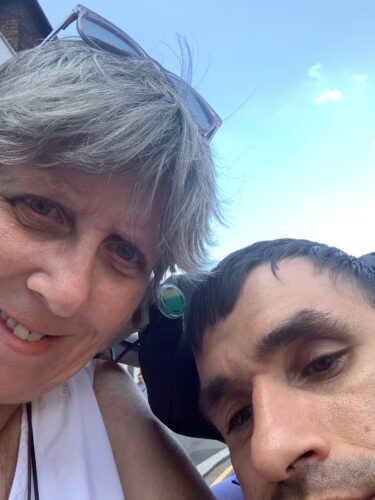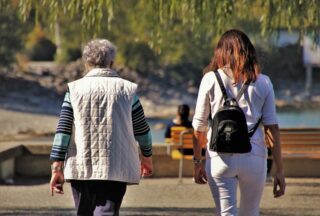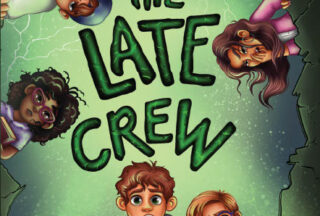I care for my son John who is 38 and has had quadriplegic spastic cerebral palsy since birth. My husband and I have cared for John together since then – however last year my husband had a leg amputated and is now in a wheelchair. I have lost my tag team partner and life has been especially challenging since then.
When John turned 19 his life feel apart. The respite services available to us when he was a child were no longer there. When I’ve needed respite there is no alternative care suitable for a young man. He would need to go to residential care for elderly people and dementia sufferers. I’ve called 30 care homes in the past and none can take him due to his complex needs.
Like all parent carers, I worry for his future and what will happen to John. I have no help from paid carers from Friday until Monday morning. There are rightfully laws in place to make sure that employees can’t be made to work without a break, but what about unpaid carers? I’m working and on call around the clock. I average 5 hours sleep a night.
The pandemic has made things much harder for carers. Yesterday I took John swimming for the first time in months. When we came out, he kept saying ‘thank you mum’. He said it over and over again and I realised that we hadn’t spent that sort of quality one-on-one time together for a long time.
I’d just held him in the pool and we’d relaxed together and connected and I realised I hadn’t ticked that box for a long time. You suddenly realise, you’re driving them to appointments, getting equipment and so on and you forget – caring isn’t just about the physical, it’s about the emotional.
It’s hard work, but when I’m shutting his door at night sometimes he’ll smile and say ‘I love you’ and ‘thank you’ and it’s worth it. It’s not just about washing someone and giving them food. You’re helping another human being.
You should never let your glass get half full or empty and most carers are running on empty.
John’s emotional state isn’t stable – he has challenging behaviour. He punched me in the face a few days before Christmas last year. I came home and I was crying with shock. This is what some carers have to deal with on a daily basis. I felt ashamed to have a black eye and I mostly avoided going out over Christmas.
Someone in the supermarket said to me ‘what happened to your eye? Did you walk into a lamppost?’. I said, ‘I was punched by my disabled son’. I felt better to say that. What happened wasn’t my fault and being honest took my guilt and shame away. How many carers are sitting there in tears because they have been punched? You feel ashamed and it’s not talked about.
We have paid carers coming in to help John. At the moment we have three people and one of them in particular, Anna, is an angel. If it wasn’t for her, I wouldn’t have been able to be with my dear mum for the 4 hours before she died. I couldn’t have taken John to the hospital with me because of Covid restrictions and I can’t leave him alone at home. I couldn’t have told my mum ‘I love you’ one last time and she couldn’t have said the same to me. If it wasn’t for this angel that we’ve found, we wouldn’t be a family anymore.
These paid carers need to be valued for who they are and what they give us. There are really really good carers out there. I have needed to navigate how to find and employ people – there was no one to help me to do any of this. You’re given money and no information on how to use it. You need to train people and pay for that. You are often set up to fail. I won’t fail, because if I do I fail John and my husband.
I’ve found my way through the forms and the paperwork and I’ve used the law to get John what he is entitled to.
The advice I’ve been given, and I would give to other carers, is to use the facts and use the law. Apply the facts to the law. There are laws in existence – the Mental Capacity Act, Human Rights Act, Care Act, the right to family life etc. I’ve had to research all of this.
I’ve been down to my last £4,000 and had to borrow £10,000 off of my mum to pay for carers to come and help John. It’s what takes its toll on carers – not the care, it’s all the additional worry. There’s no job description for it. People give up good jobs to do it. We need to elevate these paid carers. If I can’t find one then I should be paid.
Even if you’ve got carers coming in – someone has to be there. They can’t take people to a medical appointment or do his bank accounts. We’ve had an attempted theft – it really upset John as he was there when she was going through his drawers in front of him. He was scared – it’s in his own home. You need to be around to keep an eye on things.
John’s happy now with the three carers we have found and that’s what it’s all about. There is no reason why someone needs to go into a care home. Care can be done anywhere. With good care John will probably outlive me but he needs someone to fight for him. He wants to live at home and I am enabling him to do that. You change those two letters in the word ‘disabled’ – ‘enabled’.
We’re all fighting our own battles but we can make changes for the next person. There are so many laws that are broken. We have to negotiate health, social, the law and care for the people we care for.
There’s no such thing as an unpaid carer – unless you allow them to make you an unpaid carer. People are giving up their jobs. We’re not responsible by law. We are often coerced and manipulated. A live-in carer doesn’t work 24 hours a day – we do. I don’t have a life. Some days I can’t remember what I’ve eaten that day.
My advice to other carers is to find sites and groups online who can help you. There are others going through the same thing. It’s like a jigsaw – give me a piece and I can pass it on to someone with a different piece of the jigsaw. Together with hundreds and thousands of others with their own pieces of jigsaw we can sort this out.
Create a daily record of care – if it’s not written down it didn’t happen. I created my own templates in Excel and Word and I fill them in every day and so do the paid carers.
If you have a meeting with a social worker, district nurse etc then record it. You are entitled to and you’ll find people may behave differently when they know everything is being recorded.
There are some good books and factsheets out there to help you, but it is difficult when you’re a new carer to work it all out. It’s easy to get cognitive overload – you solve one problem and then another one comes up.
John’s going to wake up tomorrow disabled, I’m going to wake up and I’ll be a carer. If this is where I’m meant to be, I’m not going to fight it.





